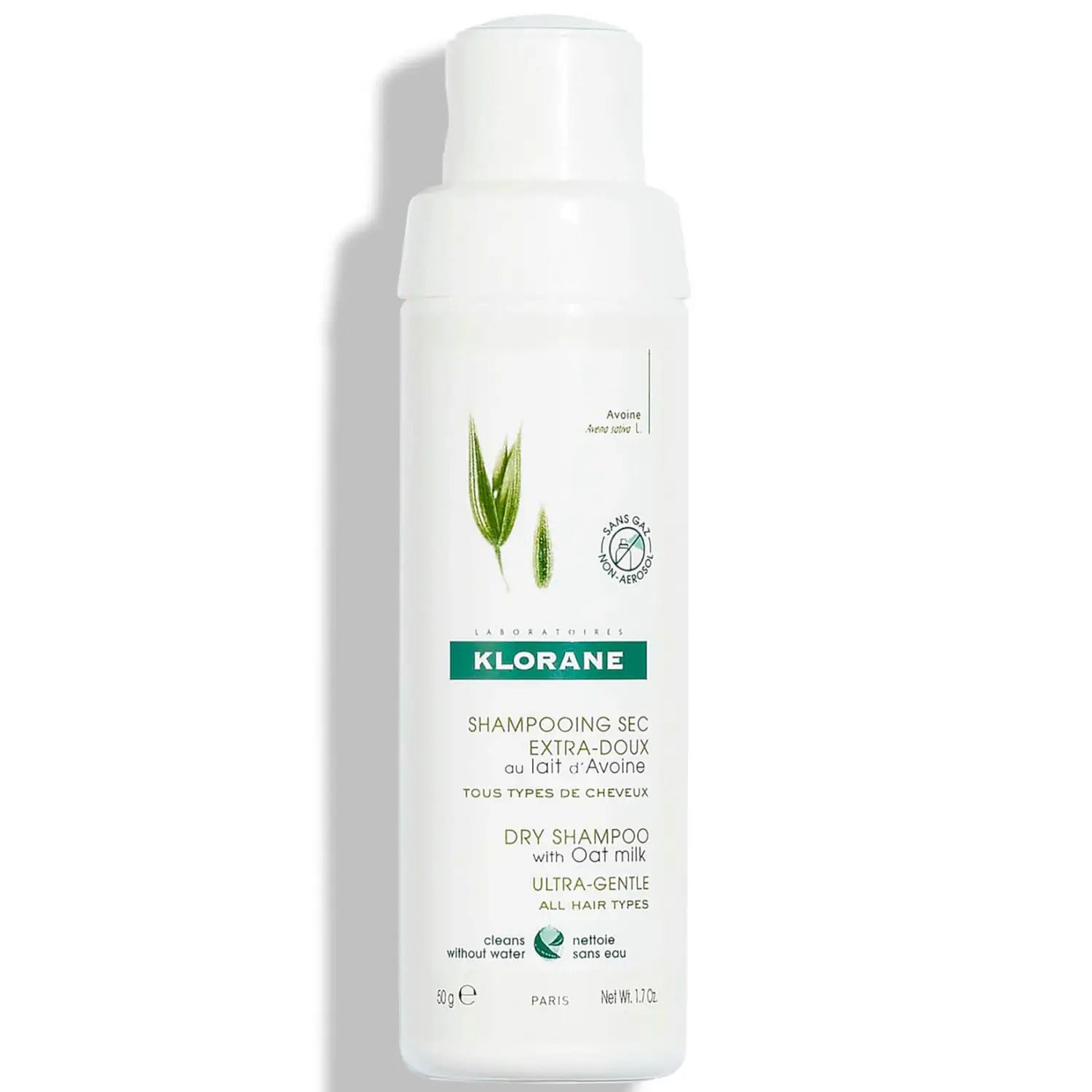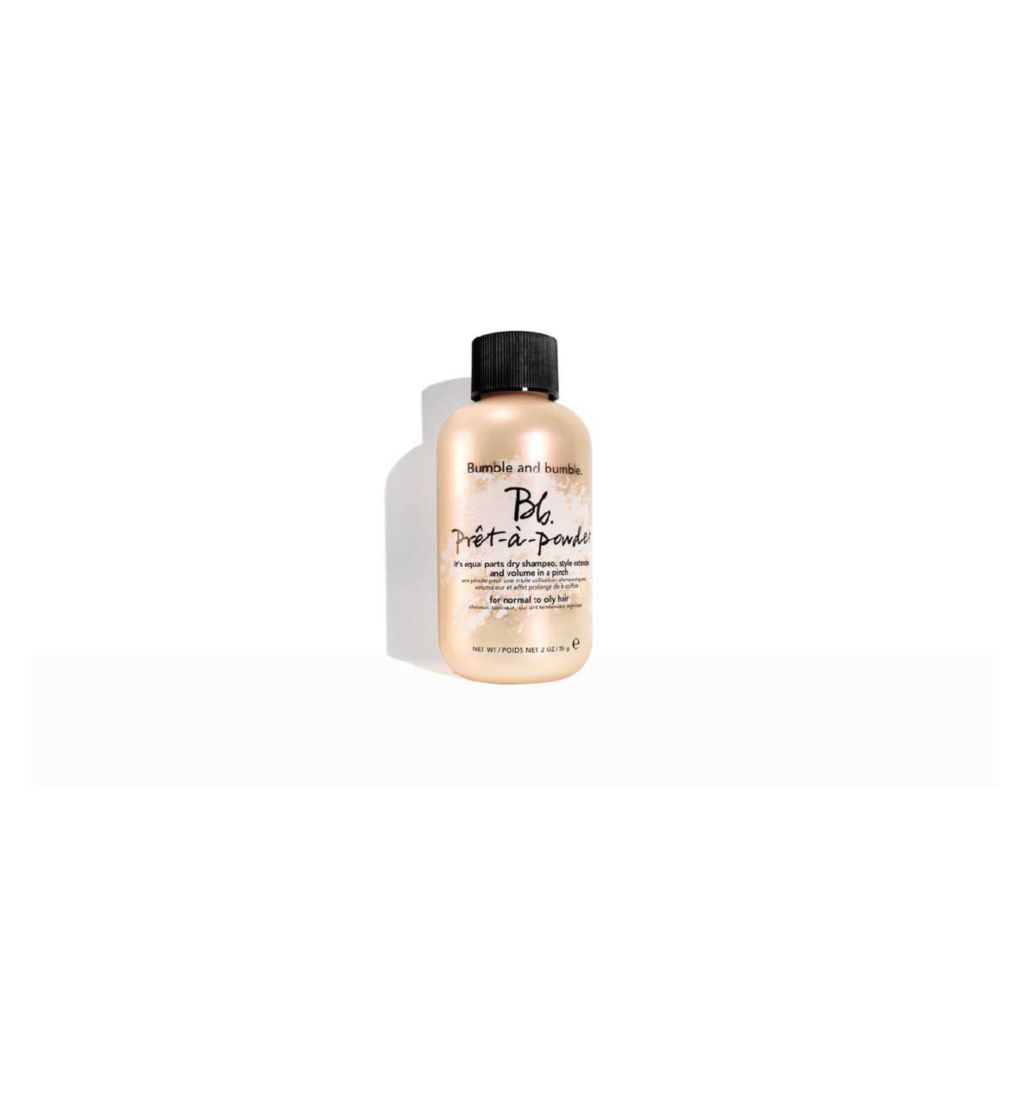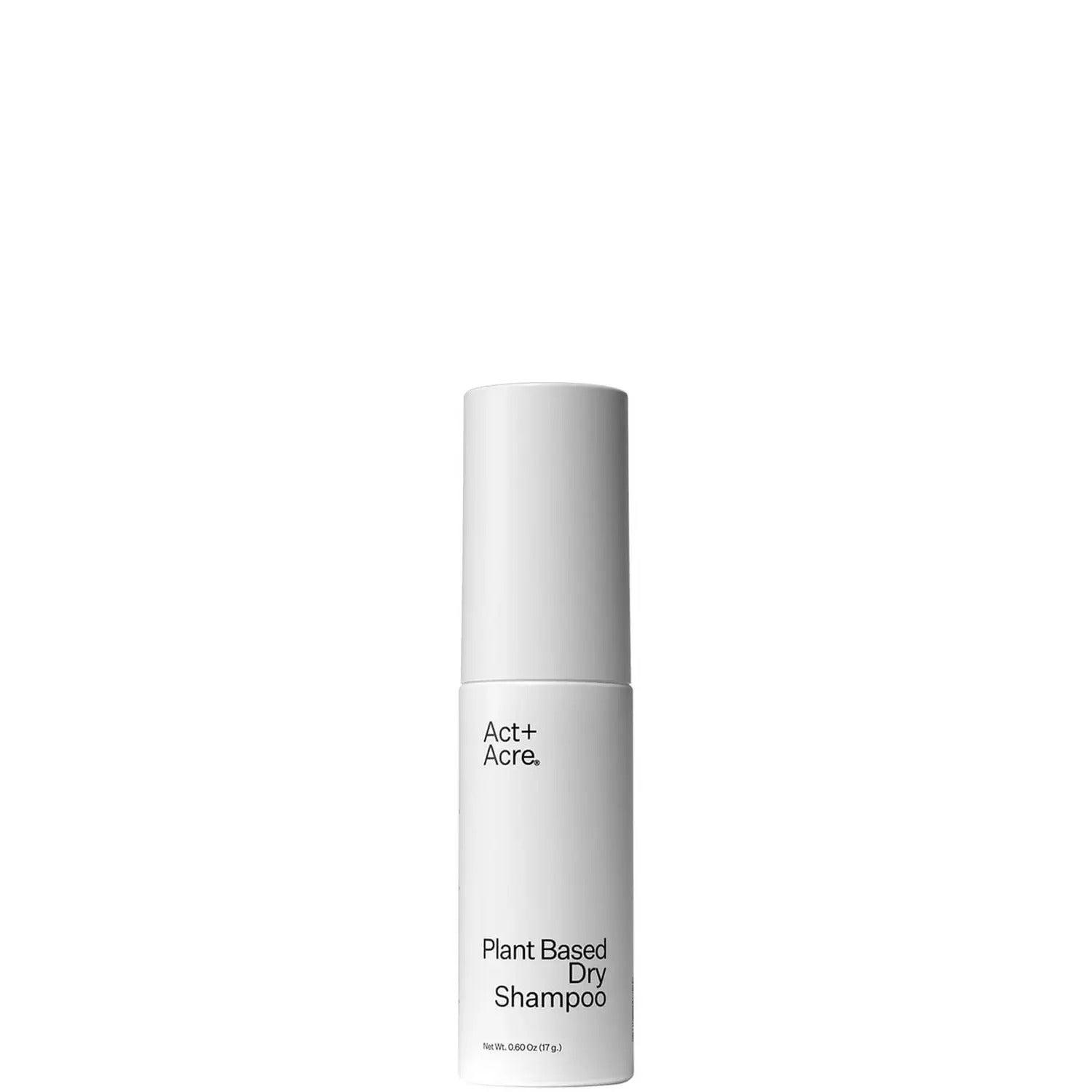From reviving limp hair post workout to extending the life of a salon blowdry, dry shampoo has achieved “Desert Island” status among the many of us who can’t do without it. It’s no wonder, then, that the hashtag #dryshampoo has an enormous 1.6 billion views and counting on TikTok. But a scroll through the hundreds of videos will reveal just how quickly the product has gone from a must-have to public enemy number one.
In addition to the usual searches for brand recommendations and smart application hacks, one of the top autocomplete answers on TikTok is “dry shampoo cancer”. It’s hardly surprising that this new, savvy generation of beauty enthusiasts has begun to cast suspicion on dry shampoo. There have been major dry shampoo recalls at well-known beauty corporations, as well as court cases worth millions of dollars, all of which have thrown dry shampoo’s safety into question. This is enough to concern even the most nonchalant of dry shampoo users. But in an era of cancel culture and social media scaremongering, how far can you trust what you hear?
AdvertisementADVERTISEMENT
Is benzene in dry shampoo dangerous?
A handful of recent dry shampoo recalls follow a 2022 study conducted by US-based independent laboratory Valisure, which tested 148 batches of spray-on dry shampoo from 34 brands. Valisure reports that it detected elevated levels of a substance called benzene — a chemical that exists in gasoline or crude oil and is used to manufacture plastics, dyes and detergents — in 70% of those products. Propellants such as propane and isobutane (found in spray-on aerosol products like dry shampoo and deodorant) can also feature traces of benzene, as they are solvents made by refining crude oil. As benzene naturally occurs within crude oil, it often unintentionally ends up in cosmetic sprays like dry shampoo.
So why the concern? The World Health Organisation (WHO) reports that exposure to benzene, primarily through inhalation, has been associated with both acute and long-term health effects like cancer, particularly leukaemia and other cancers of blood cells. Valisure’s findings resulted in a petition being filed with the US Food and Drug Administration (FDA), seeking to have said products containing benzene removed from shelves. It’s the potential presence of benzene which prompted beauty conglomerate Unilever to issue a voluntary recall of a number of its dry shampoo products in the US in 2022, including Dove, Nexxus and TRESemmé. In a press release, Unilever was quick to clarify that the recall occurred “out of an abundance of caution”, and that no issues had been reported. The company added: “Based on an independent health hazard evaluation, daily exposure to benzene in the recalled products at the levels detected in testing would not be expected to cause adverse health consequences.”
AdvertisementADVERTISEMENT
Should you be worried about benzene in dry shampoo?
R29 reached out to a handful of cosmetic scientists, a toxicologist and a cosmetic regulator to get to the bottom of benzene. According to the experts, benzene’s danger level depends on the dose one is exposed to. Jen Novakovich, cosmetic scientist at The Eco Well, drives home that benzene is a trace contaminant: “No one is actively adding it to products,” Novakovich says. “Yes, it is a ‘known human carcinogen’, however that does not mean it will cause cancer,” adds Novakovich. “This classification doesn’t tell you how much of an increased risk, [nor] the exposure required.” Benzene is something we are exposed to in our daily lives, says Novakovich. “When you fill your car with gas, you’ll be exposed to more benzene than you would be via cosmetic products,” she continues. Even still, Novakovich explains that daily exposure to benzene isn’t generally enough to lead to cancer, and that the link is more relevant to industrial workers. “Obviously, working to limit benzene contamination is important,” adds Novakovich, “but is benzene in your dry shampoo going to give you cancer? That would be extremely unlikely.” Novakovich says she wouldn’t be too concerned about the safety of dry shampoos. “If you are, though, by all means, don’t use them,” she says.
Social media isn’t subject to science-based information checking, so it can be difficult to separate fact from fiction. Registered Toxicologist Rani Ghosh says that we must take into consideration just how benzene is tested for harm. Ghosh states that although studies have indicated that long term exposure to high levels of benzene in air can cause leukaemia and cancer of the blood-forming organs, it is fundamentally incorrect to say this is the type of adversity you will experience through the use of the dry shampoos with detectable levels of benzene at parts per million (ppm). Without subjecting you to a chemistry lesson, parts per million is how many parts a certain ingredient or molecule — in this case, benzene — comprises an entire formula.
AdvertisementADVERTISEMENT
In Valisure’s study, three lots of dry shampoo products from one brand contained spray with over 100ppm of benzene. 11 lots from three brands contained spray with detectable benzene over 20ppm, the study reported. Furthermore, 18 quantities of dry shampoo from 10 brands showed levels between 2ppm to 20ppm, and 71 quantities from 20 brands contained “quantifiable benzene between 0.18ppm to 2.0ppm.” The study goes on to outline that benzene wasn’t detected (or was found to be below the limit of quantitation) in 45 lots of dry shampoos from 23 different brands.
Ghosh points out that the FDA has raised concerns about the reliability of Valisure’s testing methods, which were highlighted in a 2022 letter from the FDA to the independent laboratory. Ghosh says that if lab results are not consistent with the strict standards set by the FDA to ensure product safety, it can create panic among consumers, which explains the confusion and fear around dry shampoo on social media. Ghosh adds that it is essential to note that the mere detection of benzene doesn’t automatically imply an imminent health risk.
In relation to other benzene tests, those which are conducted on animals, Ghosh says that the data shows us the worst health outcomes that could potentially occur if exposed to chronic doses. “This is typically at a much higher dose than you would ever see in a cosmetic product,” Ghosh continues. In other words, it’s the dose which makes the poison. She also suggests that when safety tests are conducted on animals, not humans, there may be issues with reliability.
AdvertisementADVERTISEMENT
Kam, aka The Cosmetic Regulator (an anonymous cosmetic and personal care product regulator based in the UK), says it is concerning that high levels of benzene were detected in dry shampoo in the United States, but this does not mean that other dry shampoos on the market are unsafe, or that they too contain high levels of benzene. “Each cosmetic product goes through thorough testing and review,” says Kam. In fact, the UK has very strict cosmetic regulations.
Reassuringly, the UK and the EU conduct regular, meticulous safety reviews, particularly when a substance is discovered to be concerning. These reviews are carried out by specialist groups of toxicologists and regulators for one common goal: to ensure consumer safety, says Kam. Happily, dry shampoo is included in these tests. “These are cosmetic products and they must be compliant with the laws and regulations of the market they are sold in,” adds Kam. Esther Olu, cosmetic chemist and licensed aesthetician, told R29 that these regulations adapt with the ever evolving industry and that we can trust that they will keep us safe.
What was the result of the Batiste dry shampoo lawsuit?
Lately, much of the TikTok chatter around benzene centres around a recent lawsuit that saw American consumer goods company Church & Dwight — which owns dry shampoo brand Batiste — agree to a $2.5 million payout in a bid to settle consumer claims that Batiste products were contaminated with the chemical. Despite settling, it is reported that the manufacturer denies the allegations and any wrongdoing, but has agreed to settle to “avoid costs and distractions associated with continuing this case.” Novakovich tells R29 that class action lawsuits do not mean the brands involved are at fault. “There’s a big financial incentive for lawyers to file these lawsuits, especially when brands are likely to settle, which most will,” says Novakovich. This, she adds, is because dealing with lawsuits is extremely expensive, time consuming and will generally result in a lot of bad press. “Unfortunately, in the USA, the cosmetics industry specifically seems to be a target for class action lawsuits,” says Novakovich, “many of which have no merit.”
AdvertisementADVERTISEMENT
Batiste settling consumer claims is not confirmation that its products were harmful or contained harmful levels of benzene. “If it was a regulatory body taking Batiste to court, this would be a different story,” says Olu. However, whether there was merit to the concerns or not, a lawsuit such as this undeniably has an impact on the reputation of a brand — especially one as well known as Batiste. “As soon as your product is associated with a ‘cancer chemical’, the brand is tarnished and the consumer trust is lost,” explains Kam — even if there is no evidence to suggest any wrongdoing.
Does dry shampoo cause hair loss?
Alongside potential health issues, many dry shampoo users are taking to TikTok in their droves to air their concerns about a supposed link between dry shampoo and hair loss. A video captioned “Trying to tell people their hair is falling out because of using dry shampoo all the time but they say they’re gonna keep using dry shampoo anyway” has 829.8k views, while another captioned “I developed alopecia after using dry shampoo so you don’t have to” has amassed 1.2 million views.
R29 asked Eva Proudman, consultant trichologist at UK Hair Consultants, and Samantha Stewart, consultant trichologist and Hair Gain ambassador, for their thoughts. While there is little evidence to prove that dry shampoo directly causes hair loss, there is a concern that overusing the product, or using it incorrectly, can lead to scalp issues. “I don’t suggest it is used too frequently or as a substitute for real shampoo,” says Stewart. “The build-up of oils, sweat and dead skin cells can lead to problems for your hair and scalp, like flaking and itching, which, if persistent, can cause longer term issues including hair breakage and thinning.”
AdvertisementADVERTISEMENT
Using dry shampoo to get by without one wash is fine, Proudman told R29 recently, but if you’re doing it long term, the scalp may become imbalanced due to the product sitting there absorbing oil, sweat and skin cells. Proudman emphasises the importance of washing your hair regularly and thoroughly in between using dry shampoo. Additionally, prolonged use of dry shampoo can dry out the hair shaft, says Stewart, as its main job is to absorb the oil which keeps your hair strands shiny and moisturised. Put simply, dry shampoo doesn’t cause hair loss, but poor scalp health may contribute. Genetics, stress, poor diet and wearing your hair in certain styles are various factors which may lead to hair loss. If you’re experiencing hair loss and it’s getting you down, consider making an appointment with your GP or a trichologist for advice.
Overall, the expert consensus is that there is no need to worry about dry shampoo causing harm, but being vigilant is key. If you’re purchasing dry shampoo, make sure it is from a reputable brand and retailer and when using dry shampoo in an aerosol can, ensure you are in a well ventilated area. If you’d rather steer clear of aerosols altogether, opt for a powder dry shampoo instead. Beauty editors extol the virtues of Bumble and bumble Pret A Powder, £26, which you can shake into your roots. Also try Act & Acre 6-ingredient Plant-Based Dry Shampoo, £24, which enlists rice tapioca powder to tackle oil. Lastly, R29 rates Klorane Eco Friendly Dry Shampoo with Oat Milk, £11.50, with corn and rice starch. Dry shampoo is a mainstay yet.


